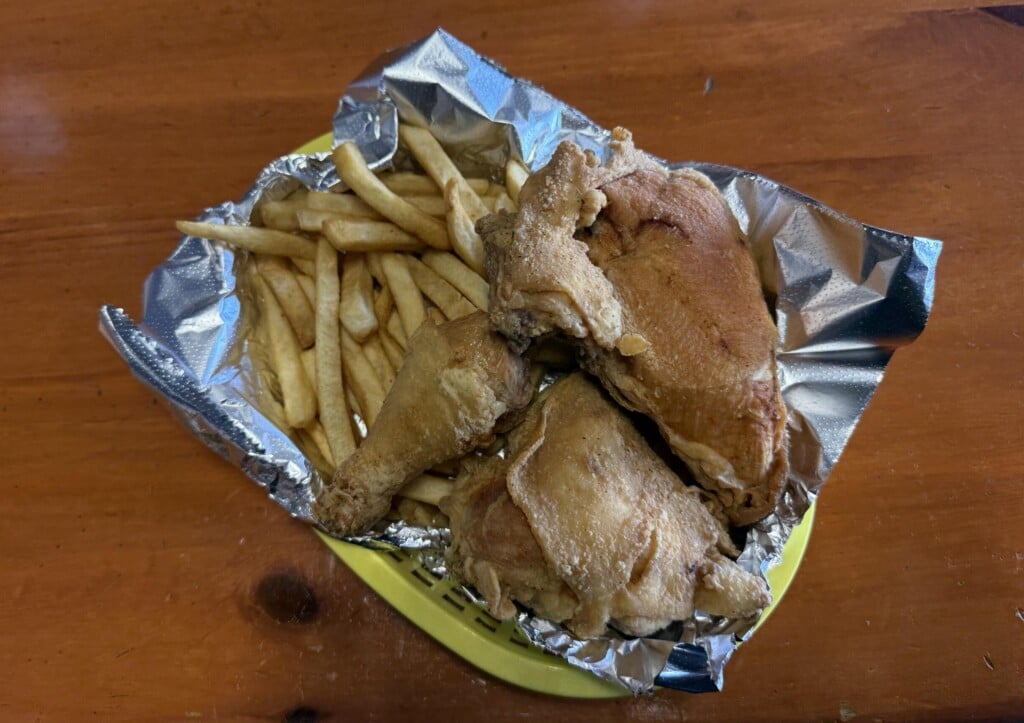Sweet Ride

The two owners of the Acme Bicycle Company have as many old bike parts in their Crossroads shop as they have reasons for not using the new ones.
“These are both derailleurs,” Christi Lynne says, holding a gear-shifting device in each hand. “See the difference?” Both derailleurs bear the same trademark. One is a forged steel relic from the ’70s that’s built to last; the other is new and made from flimsy stamped steel with plastic parts — disposable. “On this one, the Shimano name is cast in steel,” Lynne says, excitedly pointing out the sturdy craftsmanship of old. “On this one, they’ve got a decal.”
This idealistic pragmatism, embodied by Lynne and co-owner Sarah Gibson, powers the Acme Bicycle Company in business and in spirit. According to Acme’s workshop philosophy (which combines blue-collar practicality with hippie optimism), old, used bike parts are preferable because, aside from the obvious benefits of recycling, they’re made from stronger and longer-lasting materials than the feeble newer versions. Used cranks, wheels, pedals, frames, forks, seats, chains, fenders and handlebars of every shape sit in piles around the shop, overflow from crates on shelves and hang from the ceiling. “If one of these parts doesn’t work, one of these probably will,” Gibson explains, gesturing to a wall of categorized boxes.
By parceling up decrepit old bikes, Acme keeps would-be junk out of the landfill, makes customers happy with repairs that last, and stems investment in shoddy parts that will just end up in the garbage. But Acme’s idealism doesn’t stop there. Gibson and Lynne, both active members of the Greater Kansas City Bicycle Federation, want to help change the way Kansas City gets around. And they know they’re in for a built-in challenge in a town that’s not the easiest mark for a transportation paradigm shift.
“First off, we have more highway miles per capita than any other city in North America — we don’t have to deal with traffic congestion,” Gibson says. “Second — our cost of living, our cost of housing, is such that we have more disposable income to spend on gasoline.” But this Acme realism is easily countered by Acme optimism.
“If one person took one [bicycle] trip a week,” Gibson says, “to the library, the grocery store, coffee, whatever — ”
“The whole power structure would change,” Lynne finishes.
Using gas prices as a timely example, the women lay down a perfectly sensible vision of a more sustainable, more bicycle-friendly Kansas City. One in which, for example, the Plaza has a bike rack and Main Street is painted with a commuter lane for two-wheelers. This vision stems not so much from liberal sentiment, though that’s definitely present. (Acme’s logo is a peace symbol.) For Lynne and Gibson, bikes are the purest, simplest way to fix a lot of our problems, from pollution to obesity.
The shop hosts an urban ride at 3 p.m. every Saturday. This weekend, however, is a two-day special Tour de Cowtown, with a variety of cycling activities, including a scavenger hunt and a swap meet, to raise awareness of pedal power and the shop. “But mostly to have fun,” Lynne says.
With all of the other good reasons to ride a bike, we nearly forgot that one. Maybe because it’s the most obvious.




